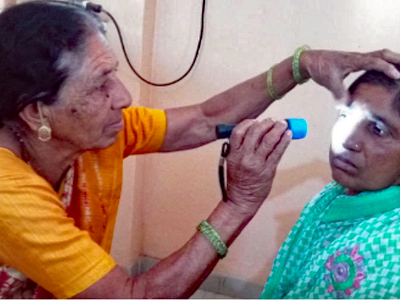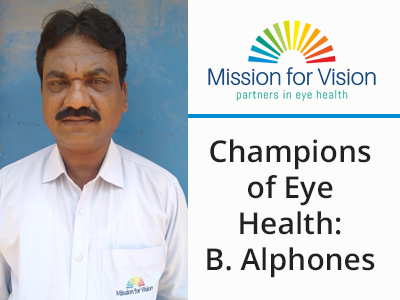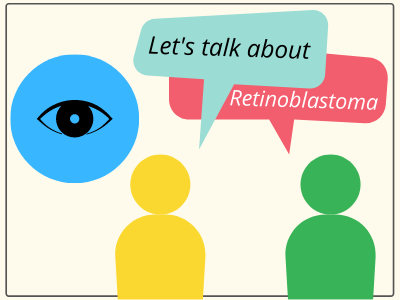Eye Screening of Tea Tribes in Assam
Created By: Amit Mondal

“Tea-Tribes” are multi-ethnic groups, who are officially recognised by the Government of Assam. As per the 2011 census, the total population of Assam was around 30.9 million and 6.5 million people belong to this tea-tribes group. This community is spread all across the state but their density varies according to the numbers and distribution of tea plantations in the state. Reaching the unreached through Community Eye Health (CEH) project is an initiative of Mission for Vision (MFV). Undertaking eye health screening and providing free or affordable eye treatment are the objectives of this project.
There is reliable data that can highlight the eye health status of this community. Both male and female members of the family engage in tea farming activities. Traditionally, the elderly family members stay at home to look after household chores. Plucking tea leaves is mostly done by women due to the uniqueness of their fingers and other activities of the tea farm are managed by rest of the family. They work eight hours a day for six days a week and they get one day in a week as a weekly off. Generally, addiction to alcohol is common among these tribes.
Health care facilities and common practices
In some cases, tea states run their health centres and even closely work with the state health departments. Improving health-seeking behaviour within this community is need of the hour, as they rarely visit health facilities. In such a situation, people often tend to ignore their eye health conditions and fail to seek eye treatment on time. Only when there is an emergency or they have been suffering for too long, they take necessary action to visit the eye doctor. Sometimes, they need to travel long distances to get their eye treatment. Within the primary and secondary health care centres, the provision of eye treatment is very limited.
In recent days, Mission for Vision conducted a KAP (knowledge attitude and practice) study on eye health with people aged 18 years and above across Kamrup metro and rural districts of Assam. 120 people participated in the study and we found that 20% people are currently using spectacles and 32% respondents have never undergone eye-screening in their lifetime. 13% respondents were not aware about cataract blindness; 95% respondents were not aware about glaucoma and 84% respondents were not aware about blindness linkage with diabetes.

Among this group, 19% respondents were not sure about their response and 61% respondents said that they receive eye health information from their friends and family members. 6% respondents still believe traditional healers are good for eye health and largely 54% respondents do nothing consciously to keep their eyes healthy.
Due to poor vision, many tea garden workers quit their jobs before their age of retirement. It leads to poor economic condition of the family. Low literacy level or ignorance too contributes towards the delay in seeking medical attention amongst the community. Making provision for good eye health services will have a positive impact on their livelihood besides helping them have a healthy mind and healthy body to nurture a good life. Role of eye sight is very crucial for this community to execute its livelihood tasks.
Community Eye Health Project
This is where Mission for Vision partner hospital Sri Sankardeva Nethralaya based at Guwahati in state of Assam, India has taken the initiative of reaching out to these tea tribe communities. They identify cases with visual impairments followed by full provision of care treatments. In some cases, the eye screening camps for tea-tribes are organised as far as 130 kms. from the base hospital.
One such camp was organised on 5th March 2020. The screening time was fixed between 11 AM to 2 PM at Doomni Tea Estate, Moslpur in association with Assam Centre for Rural Development (ACRD). The venue was provided by State Bank of India - Gram Seva. ACRD members were responsible for mobilising the patients to the camp, so they made announcements in the community before the camp date. The community members were equally enthusiastic to participate and many community members attended the camp that day.
The camp aimed to identify patients with ocular complaints, needing cataract surgeries and referral at base hospital among other eye conditions. Patients identified with cataract were provided transport to the base hospital for surgery at no cost. The hospital also provided free stay and food arrangements for the patients at its campus.
Screening and referral of identified cases with ocular complaints?
In this camp, around 100 individuals attended from the Tea-Tribes community. Major findings after screening was that 60 patients were identified and referred with refractive error, 15 were identified and referred to the base hospital with operable cataract, 2 with corneal cases for further investigation, 2 with retinal cases for further treatment and 1 case was identified with dacryocystorhynostomy and referred to the base hospital for treatment. There was a provision to distribute near vision glasses at a minimum price in the screening camp and 2 patients availed the near vision spectacles from that screening camp.

Learnings
Every single person from the community was incredibly kind and thankful to the organisation, appreciating the time and work invested for their wellbeing. Through this eye screening, the community members understood about their eye health status for the first time in their life and enjoyed the successive services at their doorsteps. They appreciated the logistical supports provided to transport operable cases from campsite to base hospital and return to the campsite again. The patients who benefitted through this programme are now spreading eye health awareness among its dwellers. Community eye health project has documented the area of improvements in spreading awareness messages, health talks to increase eye health knowledge in the community. The frequent eye camps has helped establish linkages with base hospital to increase health seeking behaviour in the targeted community. The importance of counselling to retain the eye health practices among the community members was one of the important learning.
SHARE NOW:
RELATED ARTICLES

Khairunissa: Gender Balance in Rural India
Khairunissa, 68, has been working with Mission for Vision partner Tulsi Chanrai Eye Hospital as a social worker since the inception of the hospital in 1994 at Nashik.
Read More
Champions of Eye Health – B. Alphones
The Champions of Eye Health is a special blog series that celebrates MFV and partner field staff who are the first touch-points in enabling eye health in the community. This series recognizes their efforts in engaging with community members and educating them about eye health and helping us achieve our goals towards eradicating preventable blindness.
Read More
Let's talk about Retinoblastoma: A conversation with two fathers
MFV staff Shrikant Ayyangar speaks to two fathers about retinoblastoma and their children's journey so far.
Read More